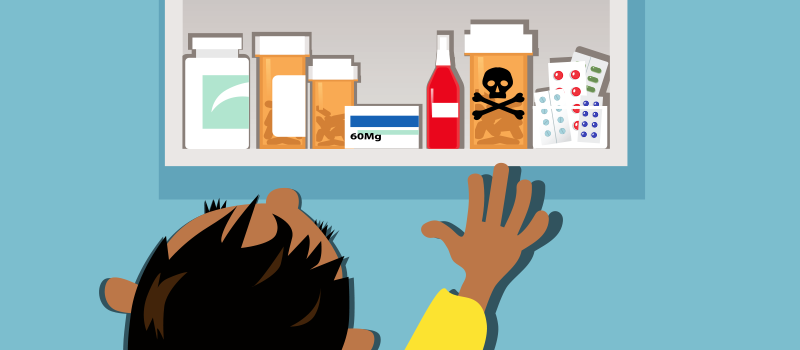What’s the Buzz
The Bee Healthy Blog
Bladder Cancer: Symptoms & Treatment Options

Approximately 82,000 new cases of bladder cancer are diagnosed in the United States each year. The average age at which people develop bladder cancer is 73 years, and 90% of people diagnosed with bladder cancer are above age 55. This is the fourth most common cancer in men but is less common in women. Please continue reading to find out the symptoms of bladder cancer and bladder cancer treatment options.
What causes bladder cancer?
The urinary bladder is a hollow organ of the urinary system that stores urine. Bladder cancer occurs when cancer cells develop, most often in the urothelial cells that line the inside of the bladder. Less commonly, squamous cell carcinoma develops in the bladder. Mutations in the DNA of these cells cause them to multiply uncontrolled and form a tumor that invades and destroys surrounding tissue.
Risk factors for developing bladder cancer include age above 55 years, male gender, smoking, exposure to certain industrial chemicals, previous cancer treatment with a cancer drug called cyclophosphamide or radiation treatments to the pelvis, chronic bladder inflammation from a parasitic infection called schistosomiasis or long-term use of a urinary catheter, or a personal or family history of bladder cancer or Lynch syndrome (a condition associated with an increased risk of urinary tract cancers).
What are the symptoms of bladder cancer?
Signs and symptoms of bladder cancer can include:
-
Frequent urination
-
Pain with urination
-
Asymptomatic hematuria (blood in the urine) - this can give the urine a bright red or cola color (sometimes, the urine appears normal, but blood is found on a urine test)
How do doctors diagnose bladder cancer?
A bladder cancer diagnosis is made on the basis of various tests and procedures, such as urine cytology to look for cancer cells in a urine sample; cystoscopy (this involves examining the bladder with an instrument called a cystoscope that is inserted through the urethra and which has a camera at its tip); tissue biopsy (obtaining a bladder tissue sample during cystoscopy for examination in the laboratory - sometimes, doctors can treat bladder cancer at the same time with a procedure called TURBT or transurethral resection of bladder tumor); imaging studies such as a CT urogram, retrograde pyelogram, magnetic resonance imaging, PET scan, chest X-ray, and bone scan to determine the stage of cancer and whether it has spread to other parts of the body.
What is the most common bladder cancer treatment?
Treatment for bladder cancer depends on various factors, including the grade and stage of the cancer.
The stage of bladder cancer ranges from 0 to IV. The earliest stage 0 is a superficial bladder cancer that is limited to the inner layers of the bladder and does not involve the muscular bladder wall (non-muscle-invasive bladder cancer). Stage IV is advanced bladder cancer (muscle-invasive bladder cancer). Metastatic bladder cancer spreads to nearby lymph nodes as well as other organs in the body.
Bladder cancer is classified as low- or high-grade depending on the appearance of the cancer cells under the microscope. The types of bladder cancer are as follows:
-
Low-grade bladder cancers have well-differentiated cancerous cells that are similar in appearance to healthy cells. This type of cancer is usually slow-growing and less likely to invade the bladder muscle.
-
High-grade bladder cancers have poorly differentiated abnormal cells that look different from normal tissue. This type of bladder cancer tends to be aggressive and is more likely to invade the muscular wall of the bladder and spread to other organs muscle-invasive bladder cancer).
What is the treatment of choice for bladder cancer?
The treatment plan for bladder cancer depends on the stage of the disease.
Stage 0 bladder cancer
-
Surgery that consists of transurethral resection (TUR) of the tumor along with fulguration (using heat from an electric current to destroy cancer cells).
-
Bladder cancer frequently recurs after surgical removal. Therefore, intravesical chemotherapy is commonly given with drugs like gemcitabine or mitomycin that are put into the bladder with a catheter (thin tube) during the surgery to reach cancer cells directly. Some patients are given multiple treatments of intravesical BCG or chemotherapy to treat bladder cancer.
Stage I bladder cancer
The same as above (transurethral resection of the tumor along with fulguration and chemotherapy). A partial or complete bladder removal surgery is sometimes necessary if the bladder cancer recurs.
Stage II and stage III bladder cancer
The main treatment for stage II and III bladder cancers is radical cystectomy (removal of the entire bladder and nearby tissues). After a radical cystectomy, a urinary diversion is created so that the person can urinate normally.
A combination of chemotherapy and external beam radiation therapy could be used. Chemotherapy with cisplatin is sometimes given before surgical treatment begins if the person can tolerate it.
In people whose bladder cancer does not respond to chemotherapy or has a high risk of coming back, an immunotherapy drug called nivolumab can help the body’s immune system fight cancer cells. Clinical trials have shown that you can prevent bladder cancer from coming back with what is called adjuvant therapy, i.e., chemotherapy or immunotherapy drugs given after surgery.
People who are not candidates for surgery or choose not to have surgical treatment might receive a combination of chemotherapy with drugs such as fluorouracil and cisplatin, along with radiation therapy to kill cancer cells.
Stage IV bladder cancer
Systemic chemotherapy is used to treat cancer in the advanced stages (when the cancer has spread outside the bladder). It may include chemotherapy drugs such as cisplatin, methotrexate, doxorubicin, and vinblastine to kill cancer cells.
Treatment may also include radical cystectomy (bladder removal surgery) and the creation of a urinary diversion.
Other treatments for stage IV bladder tumors include immunotherapy drugs such as nivolumab, avelumab, and pembrolizumab, with radiation therapy given for palliation (to relieve symptoms and improve the quality of life).
Targeted therapy with FGFR inhibitors such as erdafitinib (Balversa) is used to target and attack cancer cells.
These same modalities are used to treat recurrent bladder cancer.
Can chemotherapy be used to treat bladder cancer?
Yes, as mentioned above, various chemotherapy drugs are used for treating bladder cancer, depending on the stage and grade of the disease.
Can bladder cancer be treated without removing the bladder?
Early-stage bladder cancer can be treated by removing the bladder. Partial or complete cystectomy (bladder removal surgery) is rarely needed for stage 0 cancer, where the bladder cancer cells are restricted to the inner lining of the bladder. However, removal of the bladder may be required if there are multiple tumors or it is a high-grade bladder cancer.
For stage I bladder cancer, partial or complete cystectomy (bladder removal surgery) may be needed if the cancer comes back after intravesical therapy.
For advanced bladder cancer (stage II, III, IV), radical cystectomy (surgery to remove the bladder and surrounding tissues and organs) is the main treatment, along with chemotherapy and radiation therapy.
Is bladder cancer usually curable?
Most bladder cancers are diagnosed in the early stages when bladder cancer treatment is usually successful. However, even early-stage bladder cancers can come back after treatment. Therefore, people with bladder cancer typically are followed for many years after successful treatment to make sure that bladder cancer has not recurred.
References:












SOCIAL